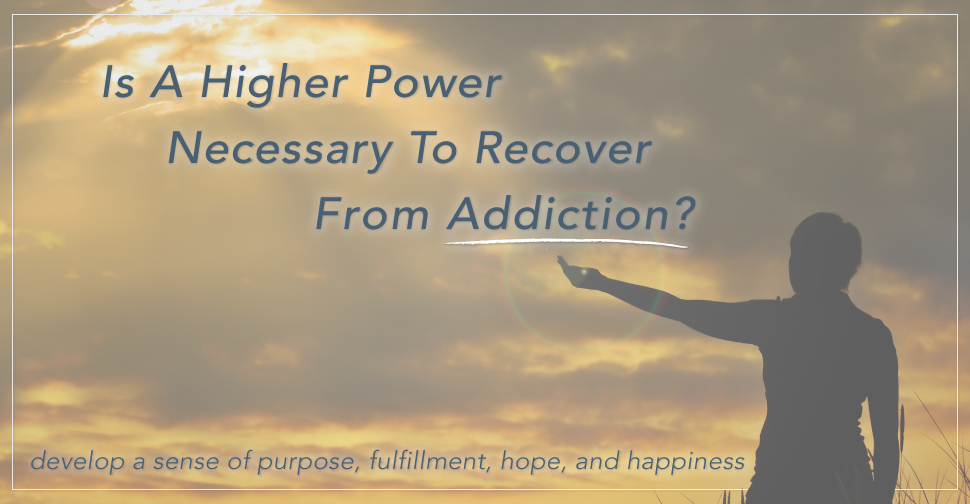
An often contended question in addiction studies is whether or not it is necessary to adhere to religious tenants, specifically a higher power, in order to successfully overcome one’s addiction. Though this is likely a question that will not have a definitive answer anytime soon, it is not without an answer, per se. Rather it requires an explanation of the various perspectives, results, formats, methods, and successes surrounding it.
The Difference Within Treatment Programs
Do you really need to believe in a higher power to achieve recovery? This is a deeply personal question with a deeply personal answer. To answer this, we must first consider how each person is unique. Every person has their own unique set of experiences, circumstances, beliefs, and history—all of these are bound together and influence both their addiction and recovery. For this reason treatment is not cookie-cutter, nor should it ever be a one-size-fits-all module.
Two of the most well-known programs in existence today are based off exactly this notion. Alcoholics and Narcotics Anonymous revolve around the concept that in order for one to truly succeed in their quest towards sobriety, they much rescind their control over to a power beyond them. They are foundational upon twelve steps, each of which builds upon the last, and many of which involve action upon or acknowledgement of a belief in a higher power.
Twelve-Step programs such as Alcoholics and Narcotics Anonymous do have a successful track record, but it is important to note that they are not for everyone. These programs do base their recovery protocol extensively around a belief in a higher power. For some, this may be a deterrent which alienates them and creates a stumbling block that inhibits them from gleaning the full benefit of the steps or treatment. It is possible that people who do not profess to a higher power may yet derive benefit and success from these programs. This has been reported, but may be more difficult.
For those who do adhere to a specific faith or denomination, there are certain programs that are built around these practices. For these people it may be especially helpful to choose a program that allows them to be immersed within their specific faith. For them, it can be exceedingly detrimental to leave behind something such as a religious practice that is so pivotal to their daily life. Having this consistency, fellowship, and support may allow them a better tool by which to succeed.
For those who do not feel comfortable professing this belief or basing their recovery off of it, there are ways of finding hope and success in alternative methods and practices. A large variety of non-twelve-step programs do exist that offer complete and well-rounded recovery guidelines. As the results and studies both show, these instill hope and mindfulness in a successful manner that is built off of support and introspection that is not rooted in a certain belief system.
The Benefit Of Spirituality
What is worth noting is the difference between spirituality and religion. While religion cannot exist without the former, spirituality can exist outside of the constructs of a certain religion or doctrine. Some studies find that this—the measure of a person’s spirituality—is what make the difference in recovery.
Elizabeth A.R. Robinson, Ph.D, an author of a University of Michigan study that focused on changes within religious and non-religious spirituality in connection with drinking outcomes, further expounded on this, saying “that the spirituality seen in the study was not necessarily a matter of believing in one interpretation of God, or even belief in a God of any kind.” For some people, spirituality extends beyond a certain deity or religious practice. Regardless of the specifics, it is this positive axis that can lend hope to the recovery progress.
A 2015 study published in the Journal of Religion and Health worked at determining how spiritual coping, forgiveness, and gratitude influenced men and women prior to and during treatment for alcoholism. It found that “both in women and in men, the lowest value among all the aspects of forgiveness was found for self-forgiveness.”
This is noteworthy, because within a battle with substance abuse, one of the emotions a person most frequently contends with that drives and fuels their addiction is self-blame. Additionally, by having a belief in a higher power, a person is allowing themselves a venue by which to be forgiven from an external source. Sometimes then, the acknowledgement of a higher power may provide a person with an easier means by which to allow themselves forgiveness. The study went on to say that “forgiving oneself can be the aspect of forgiveness that is most difficult to change and at the same time plays an important role in the process of treatment.”
A study published in the Journal of Substance Abuse Treatment (JSAT) cited the following reasons why spiritual or religious practices may help those who struggle with substance abuse disorders work towards recovery or fight relapse, according to them things may correlate to:
- Increased coping
- The obtainment of a deeper sense of life purpose
- Greater resilience to stress
- An optimistic life orientation
- A greater perceived social support
- Lower levels of anxiety.
- A buffers them against negative emotions
Again, there are ways for people to learn these things without transcribing to a certain faith or religious or spiritual practice. Therapy, support groups, and the accountability of your addiction treatment team, family, and friends can all help you to develop and maintain these skills that are crucial for recovery.
Finding Success Without A Belief In A Higher Power
It is entirely possible that a person work through their drug or alcohol addiction and achieve full recovery and lasting sobriety without a belief in a higher power. Again, as spirituality is loosely and if not widely defined, many people engage in practices that may lend these very things—hope, forgiveness, gratitude, optimism, decreased anxiety, and resilience—to their lives, allowing them to become beacons and strength to them in the moments that they struggle to keep their equilibrium and sobriety.
The JSAT study listed the following examples of different practices that other scientific studies determined that people consider spiritual: “a belief in God or a power that guides the universe, faith in mystical or transcendental experiences, and adherence to certain moral values… a broader-based construct that encompasses activities such as spending time in nature, engaging in artistic endeavors, and improving personal diet and sleep patterns…encompasses attitudes and beliefs about relationships with ourselves, other people, the environment, and ultimately with God or a Higher Power.”
Here, it is made even more evident that there are numerous ways that one can immerse and center oneselves in spiritual practices without proclaiming an adherence to a particular faith or power. Some people may engage in these activities without even realizing or believing that they are spiritual. Ultimately, it is not how you define these things that determines your success, but how you walk through your recovery and balance your mental, emotional, and physical health. It is this that sets the foundation for a solid recovery and lasting success.
For those who derive their spirituality out of things such as meditation, nature, personal diet, or creative endeavors—or for people who may simply enjoy these things and utilize them as a means to relax or center themselves—there a variety of rehabs that allow you to enjoy these things as a means to provide balance and inspiration during your recovery. Some rehabs highlight various diets, or offer yoga, outdoor activities, and art classes or art therapy. These things can remind and teach you that there are mindful and healthy ways for you to balance negative emotions and stress by.
Whether you’re in a rehabilitation facility and striving towards recovery or sober and working towards maintaining your sobriety, it is important to take time out for yourself and do things that relax you and provide you with a sense of self-worth, satisfaction, and fulfillment.
Choosing a recovery facility is a very important decision, one you should take the time to be thoughtful about. Consider what is important to you and what makes you feel good or brings positivity to your life. If you’re so overwhelmed by your addiction and these things feel far off, try to remember the things that made you feel this way before your substance use began. It can be helpful to choose a program that allows you to integrate these joyful things into your treatment and daily routine so you can again develop a sense of purpose, fulfillment, hope, and happiness.
Find Hope Today
 Are you overwhelmed with feeling stuck or powerless? Does your drug or alcohol addiction overwhelm you and damage important facets of your life? If you need hope or answers, look no further. We, at Drugrehab.org are here to help you find a path that is best suited to your needs, so that you might fight your substance abuse and achieve a full recovery and sobriety. Contact us today and get your life back on a healthy path.
Are you overwhelmed with feeling stuck or powerless? Does your drug or alcohol addiction overwhelm you and damage important facets of your life? If you need hope or answers, look no further. We, at Drugrehab.org are here to help you find a path that is best suited to your needs, so that you might fight your substance abuse and achieve a full recovery and sobriety. Contact us today and get your life back on a healthy path.
